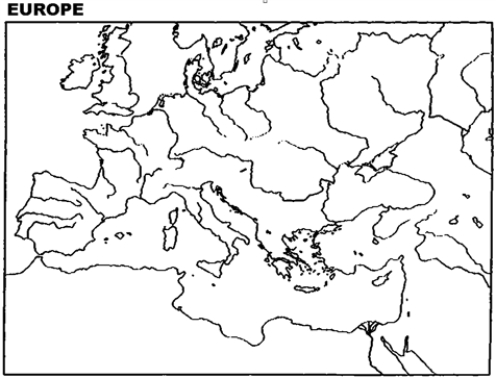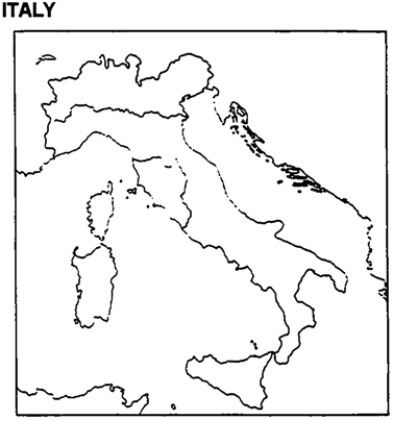Exam 8: Transition to the Modern Age: Renaissance and Reformation
Exam 1: The Ancient Near East: the First Civilizations82 Questions
Exam 2: The Hebrews: a New View of God and the Individual74 Questions
Exam 3: The Greeks: From Myth to Reason95 Questions
Exam 4: Rome: From City-State to World Empire93 Questions
Exam 5: Early Christianity: a World Religion79 Questions
Exam 6: The Rise of Europe: Fusion of Classical, Christian, and Germanic Traditions89 Questions
Exam 7: The Flowering and Dissolution of Medieval Civilization84 Questions
Exam 8: Transition to the Modern Age: Renaissance and Reformation92 Questions
Exam 9: Political and Economic Transformation: National States, Overseas Expansion, Commercial Revolution84 Questions
Exam 10: Intellectual Transformation: the Scientific Revolution and the Age of Enlightenment86 Questions
Exam 11: The Era of the French Revolution: Affirmation of Liberty and Equality92 Questions
Exam 12: The Industrial Revolution: the Transformation of Society79 Questions
Exam 13: Thought and Culture in the Early Nineteenth Century82 Questions
Exam 14: Surge of Liberalism and Nationalism: Revolution, Counterrevolution, and Unification78 Questions
Exam 15: Thought and Culture in the Mid-Nineteenth Century: Realism, Positivism, Darwinism, and Social Criticism86 Questions
Exam 16: Europe in the Late Nineteenth Century: Modernization, Nationalism, Imperialism93 Questions
Exam 17: Modern Consciousness: New Views of Nature, Human Nature, and the Arts78 Questions
Exam 18: World War I: the West in Despair83 Questions
Exam 19: An Era of Totalitarianism87 Questions
Exam 20: World War 2: Western Civilization in the Balance55 Questions
Exam 21: Europe After World War 2: Recovery and Realignment, 1945-198963 Questions
Exam 22: The Troubled Present55 Questions
Select questions type
____ promoted the view that successful princes have always been indifferent to moral and religious considerations.
Free
(Multiple Choice)
5.0/5  (36)
(36)
Correct Answer:
C
The humanist spirit in France is exemplified by
Free
(Multiple Choice)
4.8/5  (39)
(39)
Correct Answer:
D
According to Machiavelli, a prince would be successful if he
Free
(Multiple Choice)
4.7/5  (37)
(37)
Correct Answer:
C
All of the following were criticisms of the church before the Reformation except
(Multiple Choice)
4.8/5  (33)
(33)
Please use this outline map of Europe to answer the question(s).
 -Using an historical atlas, locate the birthplace of the following individuals: Erasmus, Sir Thomas More, Montaigne, Rabelais, Jiménez, Shakespeare, Boccaccio, Machiavelli, Gutenberg, and Petrarch.
-Using an historical atlas, locate the birthplace of the following individuals: Erasmus, Sir Thomas More, Montaigne, Rabelais, Jiménez, Shakespeare, Boccaccio, Machiavelli, Gutenberg, and Petrarch.
(Short Answer)
4.8/5  (46)
(46)
Who contended that knowledge must be used to promote the public well-being?
(Multiple Choice)
4.9/5  (37)
(37)
Please define the following key terms. Show Who? What? Where? When? Why Important?
-The Index of Prohibited Books
(Essay)
4.8/5  (34)
(34)
Calvin's theology of predestination spread to all the following areas in Europe except
(Multiple Choice)
4.9/5  (40)
(40)
Who said, "Unless I am convinced of error by the testimony of Scripture or by clear reason....I cannot and will not recant."
(Multiple Choice)
4.7/5  (33)
(33)
The largest group in the Radical Reformation before 1550 was the
(Multiple Choice)
4.8/5  (41)
(41)
Please use this outline map of Europe to answer the question(s).
 -Why was Italian society so amenable to the development of the Renaissance?
-Why was Italian society so amenable to the development of the Renaissance?
(Essay)
4.7/5  (33)
(33)
Please define the following key terms. Show Who? What? Where? When? Why Important?
-Council of Trent
(Essay)
4.8/5  (35)
(35)
Please define the following key terms. Show Who? What? Where? When? Why Important?
-Florence
(Essay)
4.8/5  (38)
(38)
Please use this outline map of Italy to answer the question(s).
 -On the map of Italy, locate the five major powers that emerged on the Italian peninsula: the kingdom of Naples and Sicily, the Papal States, Florence, Venice, and Milan.
-On the map of Italy, locate the five major powers that emerged on the Italian peninsula: the kingdom of Naples and Sicily, the Papal States, Florence, Venice, and Milan.
(Short Answer)
4.8/5  (33)
(33)
Compare the worldview of Humanism and Christian Humanism. How did the two differ when it came to their relationship with the Catholic Church?
(Essay)
4.9/5  (38)
(38)
Which of the following destroyed the republican constitution of Florence in 1480?
(Multiple Choice)
4.7/5  (45)
(45)
Please define the following key terms. Show Who? What? Where? When? Why Important?
-Address to the Christian Nobility of the German Nation
(Essay)
4.8/5  (33)
(33)
The success of the Reformation outside Germany and Scandinavia derived largely from the work of
(Multiple Choice)
4.7/5  (42)
(42)
Please define the following key terms. Show Who? What? Where? When? Why Important?
-Elizabeth I
(Short Answer)
4.9/5  (34)
(34)
Showing 1 - 20 of 92
Filters
- Essay(0)
- Multiple Choice(0)
- Short Answer(0)
- True False(0)
- Matching(0)